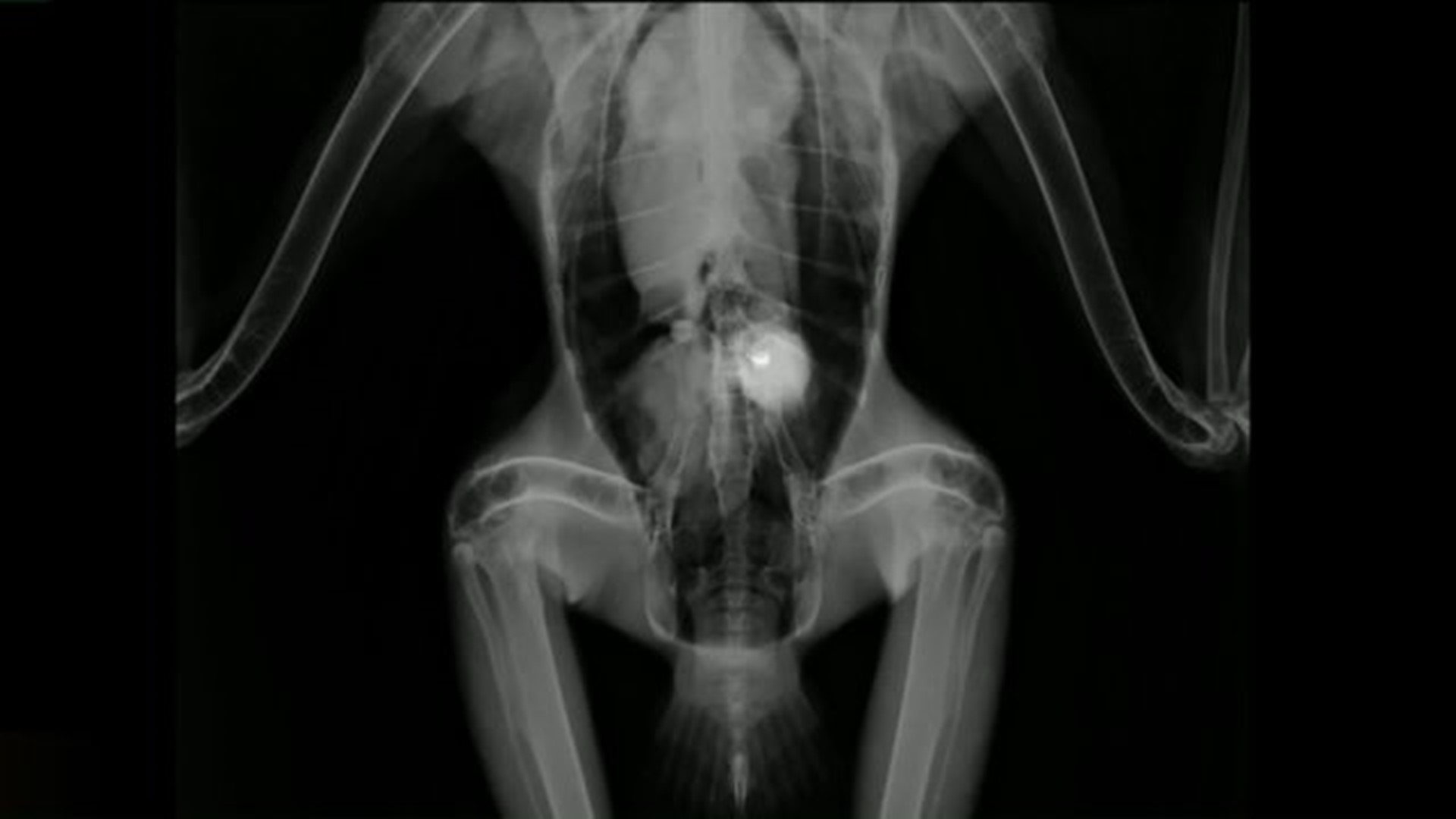SUMMIT HILL -- Last week, a 4-year-old female bald eagle was found alone and sick near the Francis E. Walter Dam in White Haven.
It was brought to the Carbon County Environmental Education Center. On Tuesday, it died.
"Its head was down. It was vomiting, and it had a very watery green diarrhea and obviously neurological problems, too,” said Susan Gallagher, chief naturalist at the environmental center.
A veterinarian at Companion Animal Hospital in Tamaqua tested the eagle and found very high levels of lead in its system; the highest she's ever seen.
An x-ray showed a metal fragment, possibly from a piece of a bullet the eagle somehow ate.
Some ammunition and fishing sinkers, for example, contain lead, and like people, animals can get sick or die from eating lead.
"I think a lot of times people don't realize that bullet being left or that piece from a fishing sinker being left behind isn't, they think that it's inane, that it's not going to hurt anything else. But other things do come along and eat it, so it is something you see unfortunately,” said naturalist Franklin Klock.
The wildlife workers care for creatures of all kinds at the center in Carbon County, but they've never had a bald eagle die before from confirmed lead poisoning.
They say what happened to the bald eagle is a tragedy, but also a teaching moment.
"My husband and I run a summer program for youth, and I was thinking through this whole experience. We're really going to push this, that you know, think about what you're putting out there in the environment. If we can get people when they're young, you can sometimes make them realize that their actions do affect the planet and I plan on using this so this bird has not died in vain,” said Jeannie Carl, a naturalist.
"Sportsmen have a choice. Again, it's a great thing and say, here's some non-lead ammunition. Here's some non-lead fishing tackle. Maybe this is a better choice when you're concerned with wildlife. It's a very simple thing that they can do,” said Gallagher.

